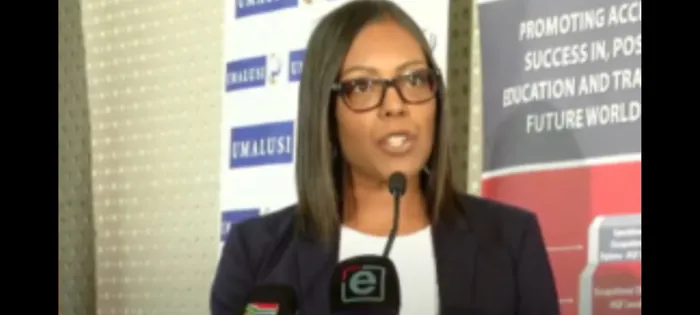Research any higher learning institution before you enrol

Properly check out a higher learning institution before you enrol. This was a message from South African Qualification Authority CEO Nadia Starr who urged the public to visit the authority’s website to check the validity of offerings at institutions prior to enrolling.
Before you pack your bags and head off to university or technikon be warned not to fall for bogus local and international colleges and to check the authenticity of any higher learning institution before enrolling.
The South African Qualification Authority (SAQA), Quality Council for Trades and Occupations (QCTO), Council on Higher Education (CHE) and Umalusi held a media briefing to address bogus institutions and fake qualifications this week .
SAQA CEO Nadia Starr urged the public to visit the authority’s website to check the validity of offerings at institutions.
“Whilst SAQA does not deal directly with accreditation and by extension bogus colleges or institutions, the SAQA searchable website database is a useful tool for self-vetting the offering of learning institutions,” she said.
“In addition to checking their accreditation status, checking the legitimacy of their qualifications on our searchable database is quite easy and convenient,” said Ms Starr.
“Those wanting to vet an institution before they or their loved one leaves South Africa for foreign study, should use the SAQA service on our website called ‘check the status of foreign institutions’.”
Turning to fake qualifications, Ms Starr emphasised that SAQA undergoes a thorough process when verifying qualification achievement. She added that when it comes to fake and fraudulent qualification achievement, SAQA is front and centre as the only entity that holds all the verified national achievements and the regulatory entity that is mandated to engage foreign ministries to authenticate foreign qualification achievements.
“Our process is to confirm that the qualification is registered on the NQF (National Qualifications Framework), either national or the foreign NQF, that the institution was accredited to offer the qualification and that the graduate claiming the achievement did indeed achieve the qualification.
“The last step is usually the only step that some commercial vetting agencies do and this leaves employers with the risk of receiving an authenticated achievement from a bogus institution,” she said.
Ms Starr added that if a qualification claimed by an individual is found to be “inauthentic or misrepresented”, SAQA refers that finding to relevant professional bodies and law enforcement agencies.
“SAQA will further record such finding in the register of misrepresented qualifications and part qualifications, and in this regard, SAQA is liaising with the Department of Higher Education and Training and our quality councils to provide for clear policy and regulations in the enforcement of the misrepresentation clauses. Misrepresentation qualifications can lead to legal repercussions for both the individual and the employer,” she said.
Ms Starr said in the context of increasing academic fraud and misrepresentation, SAQA hopes this information will help the public make informed choices when they are considering study options in South Africa and abroad.
Related Topics: